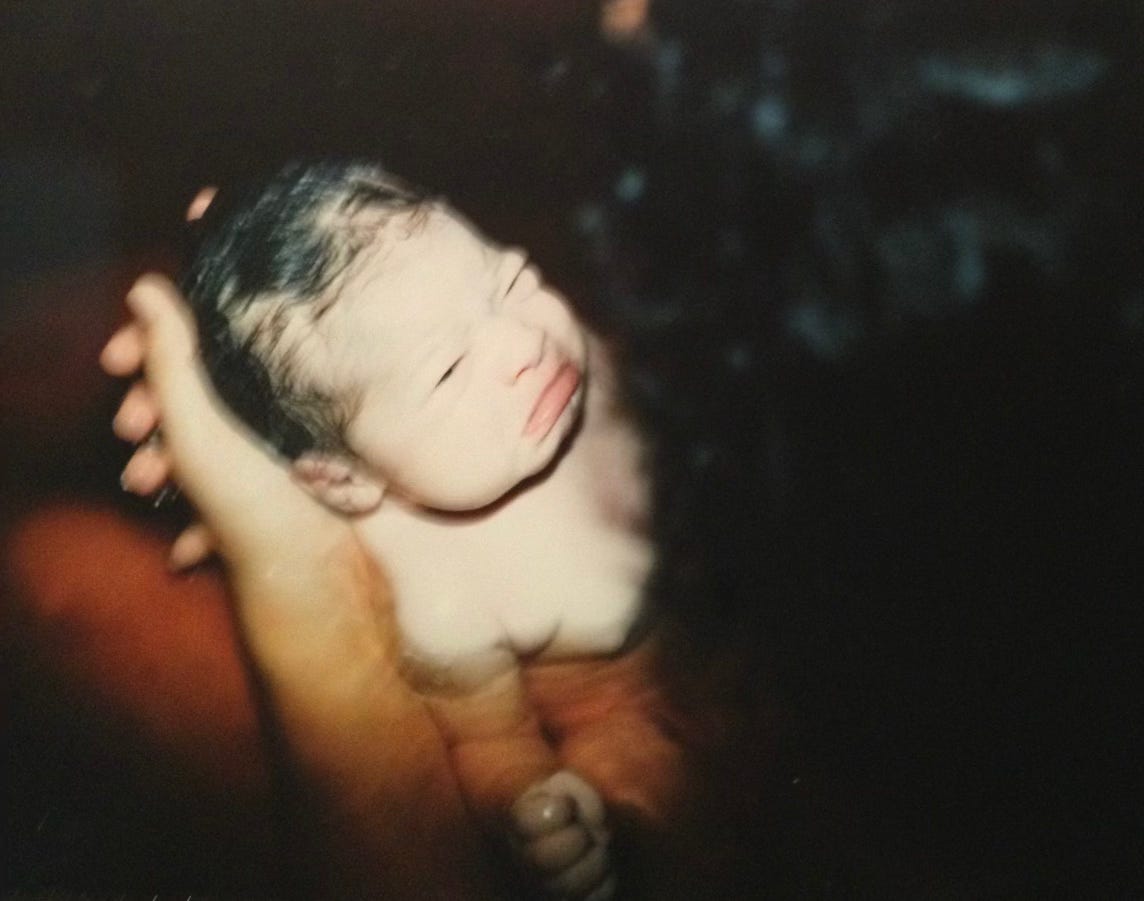MYTHOLOGY
I’ve struggled to be alive for much of the time that I have been. I believe it started with my birth.
I came earthside for the umpteenth time at a birthing center in Culver City. It was a Thursday at 5:27 pm. I don’t remember actually getting here. Even pictures of my mother and father stacked together like a pair of folding chairs in a bathtub full of blood and viscera don’t jog any memories.
I came out pale white and angry. In the photos, my parents are in awe, staring down at my wrinkled body. My little fists are balled, my lip is curled, and my eyes are scrunched with rage, appearing as nothing more than a pair of thin black slits. I didn’t want to be born.
I do remember being in utero. I see it even now: the orange light of the outside world dimmed and filtered through skin and run through with spiderwebs of thin veins, like when you close your eyes and look up at the sun. My mother’s voice was a comforting, underwater rumble—indecipherable in meaning but understood all the same. I was loved, and I knew this—even then, this was known.
Tensions rose between my mother and me as the due date came and went. Our desires were fundamentally at odds, and soon, our relationship came to more closely resemble that of a landlord and squatter than parent and child.
“You have to come out. If you don’t, I’ll have to go to a hospital, and I won’t go to a hospital. Do you hear me?”
I did but said nothing. I floated, absorbed, and put the finishing touches on my newly developed lungs. The threat of intervention didn’t frighten me. This was California, and I understood my housing rights under adverse possession laws.
Twelve days had passed, and mother’s stress was palpable—she wanted the birth she’d planned with candles, and a warm tub, and a midwife. That night, she pleaded with me.
“Please come out, please, please come out. You have to come out.”
I heard again, but this time, the guilt began to eat away at me. I knew she was right and that I had to give in. On the thirteenth day, I shot out like a cork. After all that waiting, it felt appropriate to make an entrance.
No one can really confirm how many times they’ve been a person. Past life regressionists will tell every woman she was once Cleopatra and every man that he was Julius Caesar. I’ve never bothered with any of that—I just know. This place has always felt familiar, even if I can’t quite put my finger on it.
See, if you understand this, then the reason I struggle with everyday living becomes clear: I have the sort of deeply rooted, karmic resentment one feels when they’ve worked a full week, and the boss calls them in on a Saturday. I paid my dues, and I believed I wouldn’t have to return. That I wouldn’t need to hold plans and keep appointments. That I wouldn’t have to text back and answer emails. That I was done with paying taxes and holding while being transferred to the appropriate representative. I wanted to close out my tab on the last round, say my farewells, and go home for good. I wanted to remain in spirit alone. To live in the soft breeze through towering pines and beam in the sunlight, hot and fat over broad desert rocks. To crash and dance through sea spray, cresting roiling waves, and scatter in the glittering sand as a billion points of light. I wanted to be free.
As I write this now, the pain that nestles in the crescent moon of my shoulder blade—carried from a car accident eleven years ago—burns as it radiates toward my spine. My head is full of worries too long and wide to possibly see all at once. My face is sinking, morphing, changing all the time. I’m bound to this place, to this person now, and by some unwritten code, I know I have to care for it until it withers around me and returns to the earth.
So here I am, working on the weekend. I’ll make the best of it—I always do. But next time I’m asked, I’ll let the call go to voicemail.
The Birth of Alana Cloud-Robinson - (1995)


